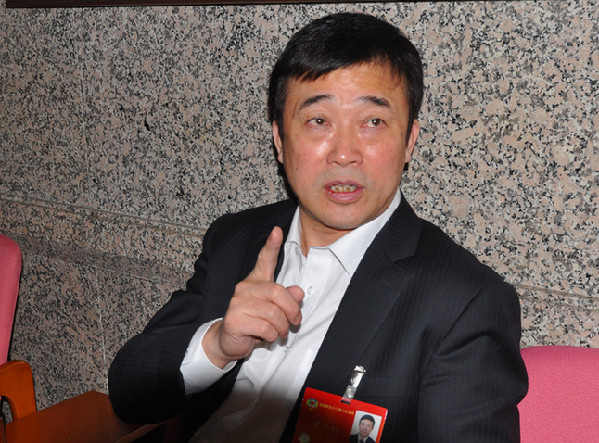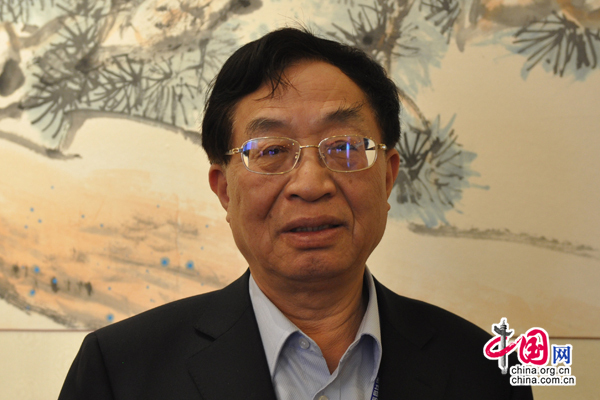Space scientists: China wants cooperation not a space race
- By Zhang Rui
 0 Comment(s)
0 Comment(s) Print
Print E-mail China.org.cn, March 12, 2014
E-mail China.org.cn, March 12, 2014
After China launched the Shenzhou 9 and Shenzhou 10 manned spaceflights, some international observers started to worry that a new space race had started, which Chinese space scientists have denied.
Ye Peijian, chief designer of the Chang'e-1, China's first moon probe, and chief commander of the Chang'e-2 and Chang'e-3 missions, told China.org.cn, "China has witnessed rapid development. Foreigners may think it's a space race, but we don't think so. Actually, many things we have done were accomplished by the United States and the former USSR several decades ago. We are standing on the shoulders of giants."
"China is a big country, we have to develop our own space endeavors," he added.
His comments came on the sidelines of the second annual session of the 12th National Committee of the Chinese People's Political Consultative Conference (CPPCC), which concluded Wednesday morning.
Liang Xiaohong, Party secretary of the China Academy of Launch Vehicle Technology, agreed. "Every country has its own objectives when it develops its aerospace industry, but we always follow a peaceful path and we always advocate the peaceful use of outer space. But we also have to be prepared when other countries develop military power in outer space."
Barriers set by the United States
|
|
|
Liang Xiaohong, Party secretary of the China Academy of Launch Vehicle Technology. [China.org.cn] |
According to Liang, the United States has introduced barriers in China's space development. Chinese rockets cannot send American satellites into space and China cannot send or build any satellites which are going to use American components and materials unless the U.S. Congress approves. "But their congress never approved," he said.
Liang said China is developing markets in developing countries, such as Brazil, Bolivia, Laos and African countries.
"Why can we develop markets in developing countries? Because our price is low, our service is good and we can train talents," he said.
But he said there is still a possibility of cooperation with Western countries. "We may have a gap with Western countries but we are catching up and we are the best among the developing countries. We can still cooperate in some aspects. We are currently talking to European institutions and want to set up a company to launch rockets and send their small satellites, though there are barriers, we have to get beyond the Chinese border. We may have differences in ideology, but they shouldn't affect science."
The mission to Mars
|
|
|
Ye Peijian, chief designer of the Chang'e-1, China's first moon probe, and chief commander of the Chang'e-2 and Chang'e-3 missions. [China.org.cn] |
Ye Peijian told China.org.cn that China is now capable of a Mars expedition. "If the government decides to go ahead with it, we can start right away."
"Mars is the most Earth-like planet, it is the best planet to do expedition and research."
"The satellites are the biggest part of our space plan for now. We are going to launch the Tiangong 2 space laboratory, Long March 7 rocket and cargo spaceship. We are sparing no efforts to build a space station by 2020."
Ye is also the chief commander and design advisor for Chang'e 5, an unmanned Chinese lunar exploration mission currently under development, which is expected to land on the moon by 2017. The mission is harder than Chang'e 3, because its plan is to get samples from the moon and take them back to earth.
"For the future, we have to prepare for all the possibilities in space exploration," he said, "we will go beyond the Moon and Mars. If a country doesn't have people who look beyond the stars, then there is no hope."








Go to Forum >>0 Comment(s)